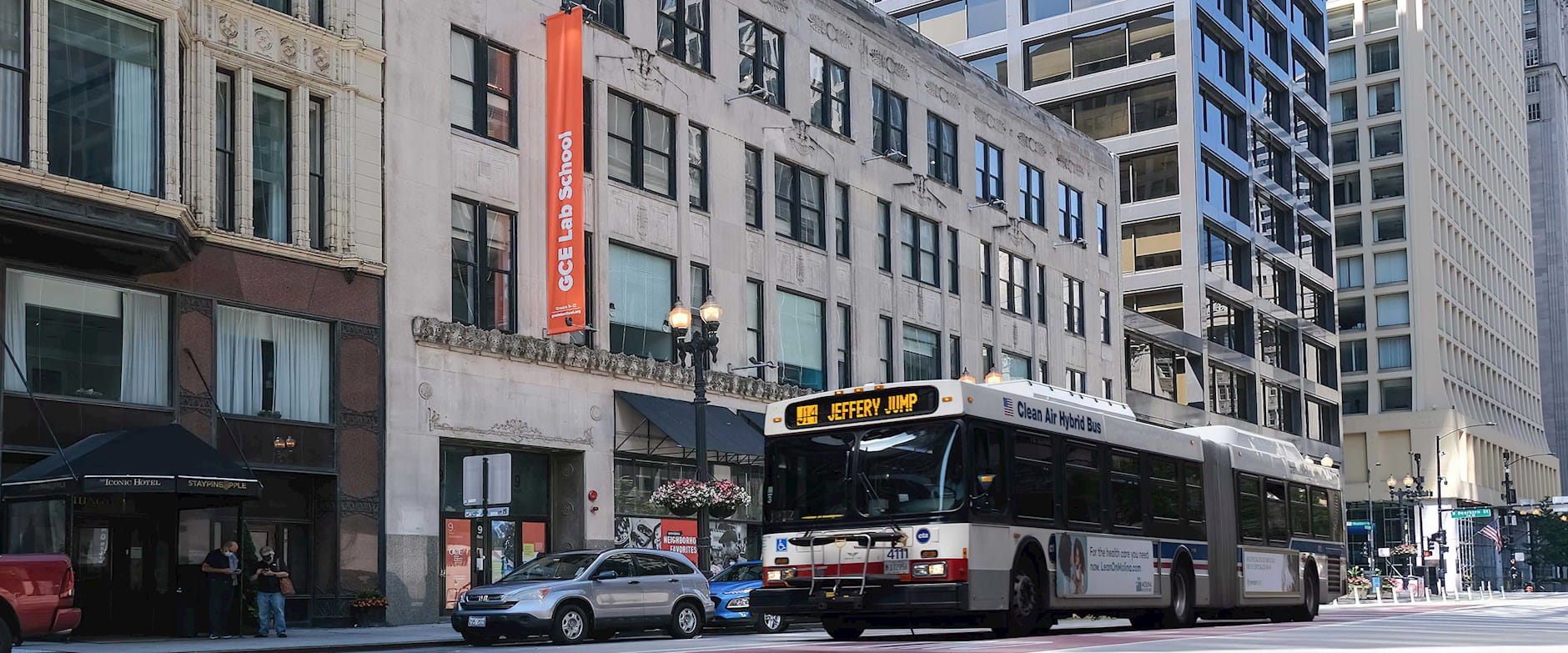The summer before Rachel Salvador, ’20, arrived at the University of Chicago Booth School of Business campus, she was already thinking about ways to get involved at local nonprofits.
The first step: joining the Chicago Booth chapter of the Net Impact student group, part of a national organization of emerging leaders committed to using business fundamentals to make a positive impact for people and the planet.
“I wanted to reach as many people as possible and to contribute—even if it was just in some small way,” she said.
As a member of Net Impact, Salvador participated in the Net Impact Board Fellows Program, an initiative run by the student group and Booth’s Rustandy Center for Social Sector Innovation that matches MBA students with nonprofit organizations to serve as nonvoting members of their boards of directors for a seven-month term.
Because of her interest in education, Salvador matched with GCE Lab School, a Chicago high school focused on experiential learning. The school’s leaders were in scaling mode, moving the campus from the Lincoln Park neighborhood to downtown and expanding from 50 students to 175.
At GCE, growing the board of directors to mirror the needs of the school’s expansion was a priority, and leaders tasked Salvador and classmate Michael Kovach, ’20, with gathering data on how to structure the board effectively and to pinpoint the skills future board members would need to help the school grow.
Since 2015, more than 400 Booth students have participated in Board Fellows, serving on the boards of over 120 nonprofits. The result is a win-win for both parties—students get firsthand experience understanding how nonprofit boards tackle problems, and organizations get pro bono help from MBA students who work on a strategic project of the nonprofit’s choosing.
“Even while we were working on our own nonprofit projects, we were also sourcing ideas from other students and supporting each other,” said Salvador, who is now a product manager at Duolingo, a language-learning app.
Net Impact recruits students to Board Fellows, and the Rustandy Center leverages its existing nonprofit network in Chicago to find meaningful opportunities for students to give back. Nonprofit projects have run the gamut, from the Hyde Park Neighborhood Club asking students to develop new tools for fundraising and evaluating potential partnerships, to students helping a Chicago nonprofit conduct due diligence for a potential merger.
As Booth’s social impact hub, the Rustandy Center offers a host of hands-on learning programs for students (and alumni) eager to make an impact and gain experience in the social sector. The center connected Salvador and Kovach with a coach, Lena Jessen, ’04, who helped them think through how to address the challenge of transforming GCE’s board. “We were able to sit down and figure out what that looked like,” Salvador said.
For nonprofits, participating in Board Fellows is an opportunity to leverage another set of eyes and hands when tackling complex problems, said Stephen Wilkins, a member of GCE’s board of directors. Students also provide a window into new strategies and data-gathering tools.
“The Board Fellows provide a general management perspective, particularly around board development,” he said. “A lot of us have been out of the school for a while, and these are students with the most cutting-edge management practices.”
Wilkins said interfacing with the business community can also be a powerful force for nonprofits and their missions. “Many students who go on to have careers in the business world will share an interest in using the private sector for public good.”
Kovach, who also prioritized education and youth development as top project preferences, said the experience gave him a greater appreciation for operating an organization dedicated to maximizing social (rather than strictly financial) returns. Now working for a health-care technology startup, Kovach said that he plans to use this insight in both his current private sector role and future nonprofit endeavors.
“The Board Fellows program gives you an inside view into how passionate, generous community leaders bring about change, and I am grateful for the opportunity to help accelerate their progress.”


